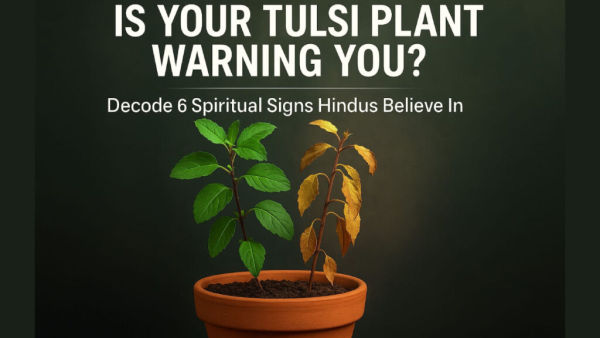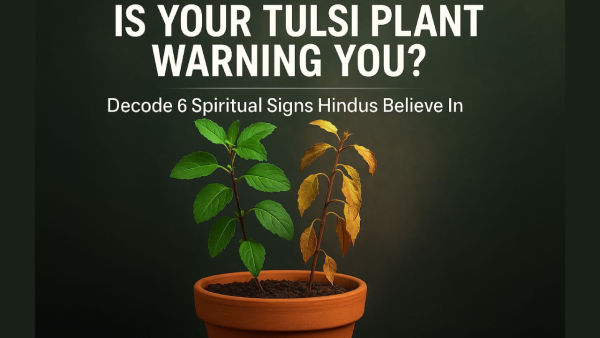

Mumbai: In Hindu households, the Tulsi (holy basil) plant is more than just a symbol of devotion—it is believed to be a spiritual sentinel, protecting the home from negativity and inviting prosperity. However, sudden changes in the plant’s health are not taken lightly. If the Tulsi plant begins to dry up or its leaves fall rapidly, many interpret it as a serious spiritual signal that something may be amiss.
According to astrology and Vastu Shastra, unusual deterioration in a Tulsi plant may reflect negative energies entering the home. It could indicate an upcoming financial difficulty, declining health of a family member, or emotional unrest in the household. Let’s explore the possible spiritual meanings behind changes in the Tulsi plant.
If the leaves of the Tulsi plant begin to turn black or appear constantly wilted, it may be seen as a sign of negative forces or the impact of the evil eye. In traditional belief, this may even suggest a looming crisis for the head of the household.
Repeated wilting of the plant—even after proper care—is also linked to persistent negative energies. In some interpretations, it reflects spiritual imbalance or the presence of hidden emotional strain within the home.
If ants suddenly start appearing on or around the Tulsi pot, it could symbolise an impending financial loss or even theft. Vedic belief suggests it may indicate the presence of a hidden enemy trying to harm the family.
If your Tulsi plant stops producing new leaves or appears stunted in growth, it could be a sign of obstacles in career growth, business setbacks, or even stress to children. It symbolises stagnation and delay in prosperity.
A fading green colour or yellowing of the Tulsi plant is seen as a reflection of growing discord or ideological differences within the family. This may disrupt the harmony and peace of the household.
According to Vastu Shastra, the Tulsi plant should ideally be placed in the North, East, or North-East direction. If planted in the wrong direction and experiencing continued issues, it is believed to attract difficulties, arguments, and ongoing misfortunes for family members.
(Disclaimer: The information provided is based on traditional beliefs and religious texts. News9 Live does not endorse or validate these claims.)